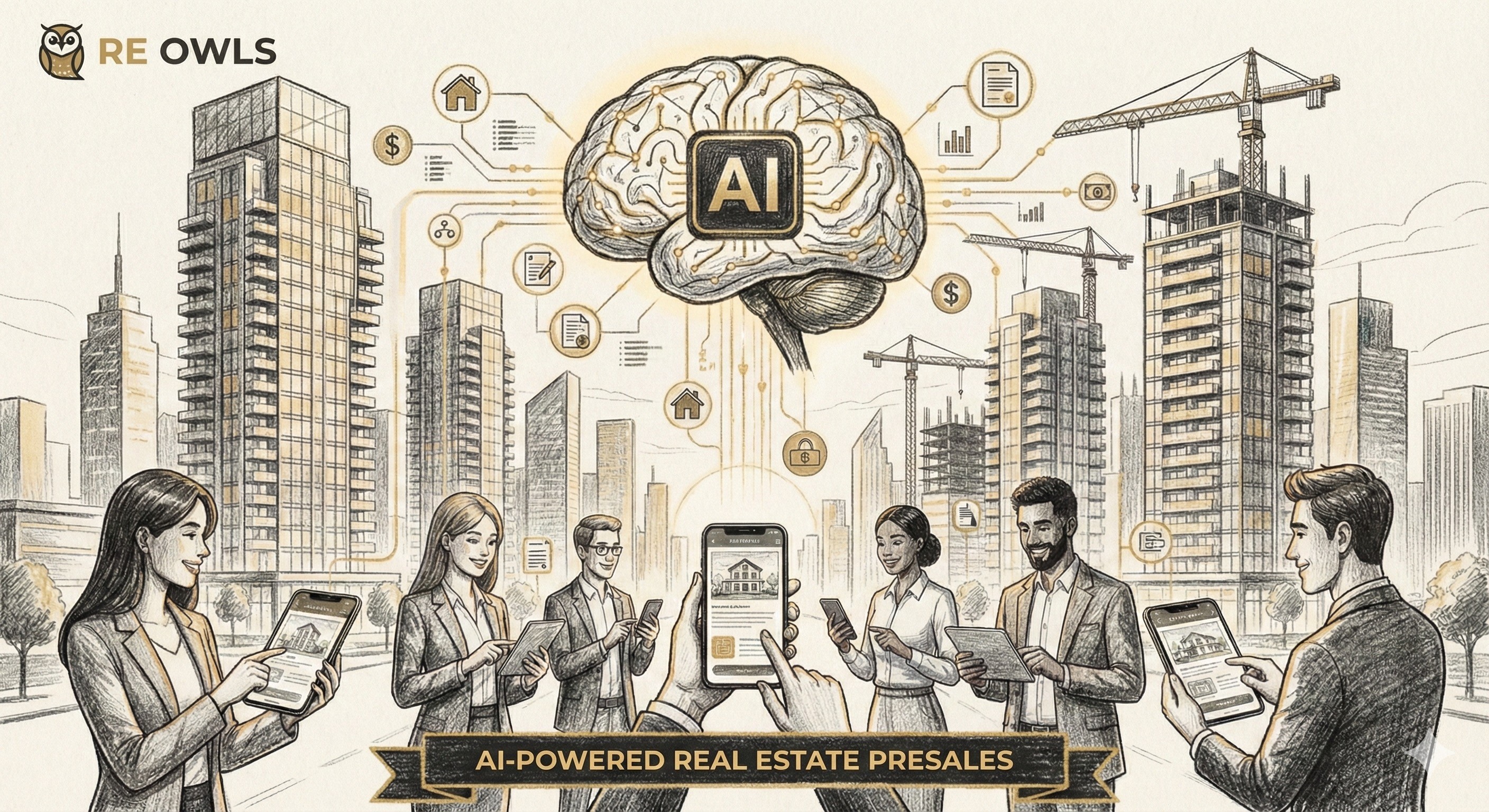The integration of Artificial Intelligence (AI) across various sectors is revolutionizing industries, but its transformative potential within the realm of real estate is particularly notable. From improving operational efficiencies to redefining how properties are designed, marketed, and managed, AI is set to redefine the landscape of real estate.
Industry experts like Mary Hogan Prusy, a senior adviser at Fifth Wall with a career spanning analysis and investment in the real estate industry, and Ofer, a partner at Fifth Wall, share insightful perspectives on how AI technologies are paving new pathways for innovation in real estate. Their deep dive into the evolving role of AI highlights not only the opportunities but also the challenges and considerations for individuals and companies navigating this new frontier.
The Evolution of AI in Real Estate
The journey of AI in real estate has evolved from the rudimentary "if this, then that" decision trees of the 70s and 80s to today's sophisticated generative AI models. These advanced models go beyond simple automation, capable of generating new content, insights, and solutions that were previously unimaginable.
Generative AI, as discussed by Sarah L, a partner at Fifth Wall leading their AI investment efforts, represents the cutting edge of AI technology. Unlike the enterprise AI that has been around for decades, generative AI leverages foundational models for processing language and images, enabling a leap forward in how data is utilized and interpreted in the real estate sector.
Real-World Applications of AI in Real Estate
AI's application in real estate spans various operational aspects, from document management to design optimization. Companies like Docsumo and Document Crunch are at the forefront, utilizing AI to streamline the processing and management of crucial documents such as leases, rent rolls, and invoices. This automation not only accelerates the workflow but also lays the groundwork for generating actionable insights from vast data sets.
Furthermore, AI is revolutionizing the design process by enabling the generation of detailed construction documents and 3D models with minimal human intervention. This shift not only saves time but also significantly reduces the manual effort traditionally required in design work, highlighting AI’s potential to enhance efficiency and creativity in real estate projects.
The Broader Impact of AI on the Real Estate Industry
The implications of AI in real estate extend far beyond operational efficiencies and into the very fabric of the industry's workforce. AI is poised to redefine job roles, with a particular impact on positions related to creative writing, copywriting, and entry-level legal work. These roles are identified as among those most susceptible to automation, driven by AI's ability to replicate and exceed the output quality of human labor in these fields.
However, this technological revolution also introduces a wave of opportunities, particularly for professionals specializing in data science, software engineering, and AI development. Contrarily, the skilled trades and blue-collar jobs remain largely insulated from AI disruption in the near term, emphasizing the nuanced impact of AI across different sectors of the workforce.
The macroeconomic impacts of AI adoption in real estate are profound, suggesting a future where the balance of job demand may shift significantly. This transition presents both challenges and opportunities for the industry, highlighting the importance of strategic planning and adaptation to the evolving landscape.
Navigating the Risks and Regulatory Landscape
The rapid advancement and adoption of AI technologies come with a set of challenges, particularly around data privacy, information accuracy, and the transparency of AI-driven decisions. The largely unregulated nature of AI in real estate underscores the need for companies to adopt these technologies thoughtfully, balancing the imperative to innovate with the need to manage potential risks responsibly.
Embracing AI without due consideration to these factors can expose companies to risks related to data misuse, inaccurate analyses, and opaque decision-making processes. This is particularly critical in highly regulated sectors like mortgage lending, where AI's decision-making must be both effective and explainable.
Strategic Approaches to AI Integration
For real estate companies to successfully navigate the AI revolution, a strategic approach to technology adoption is essential. This strategy begins with education, ensuring that company leaders and employees understand AI's capabilities and limitations. Identifying practical use cases within the organization and selecting the right technology partners for implementation are critical steps in leveraging AI to its full potential.
Fifth Wall, leveraging its deep industry knowledge and technological expertise, plays a pivotal role in guiding real estate companies through this transition. By facilitating partnerships with AI startups and providing strategic advice on technology adoption, Fifth Wall helps bridge the gap between real estate's traditional operations and the innovative solutions offered by AI.
Conclusion
The advent of AI in real estate marks a significant turning point for the industry. As companies grapple with the dual challenges of embracing new technologies and managing associated risks, the insights and strategic guidance provided by industry experts like those at Fifth Wall become invaluable. By actively engaging with AI advancements, real estate companies can unlock new levels of innovation, efficiency, and competitiveness, shaping a future where technology and real estate evolve hand in hand.
This blog post aims to shed light on the transformative impact of AI on the real estate industry, offering a glimpse into the future of real estate shaped by technological innovation. As the industry moves forward, the integration of AI will undoubtedly play a pivotal role in defining the next era of real estate.




